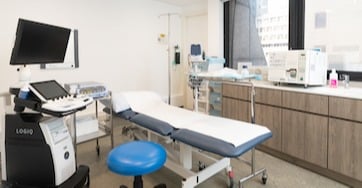Written by: Dr Tim Trodd (Functional Medicine)
The treatment of cancer has improved due to therapeutic advances, especially checkpoint inhibitors. As doctors we spend a lot of time discussing the screening for and treatment of cancer. This is going to change fast, this year or next.
Big picture Cancer is a biological process. Some Stage 1 cancers may regress, but once you have Stage two, three or four that cancer, untreated, will probably kill you, regression is uncommon, less than 1 in a hundred cases.
So, screening for cancer should be a no-brainer, the earlier you catch it, the less the stage and simpler the treatment. Yes, of course, but although that may seem intuitively logical proving it is so complicated it is nearly impossible. As the treatments for cancer get better and better, it is paradoxically less beneficial to screen, to design a trial powerful enough to detect a benefit of treatment to Lifespan becomes harder and harder. Remember every screening intervention has a cost as well as a benefit. Not only a financial cost. Biopsies can lead to physical complications and even death, never mind the psychological distress. The decision to screen is always a balance made on an assessment of risk/benefit. However, as the treatment of cancer is far simpler, less expensive, and dangerous to your health at an earlier stage we still recommend screening in some situations.
Screening tests currently available such as Mammography and PSA (blood test for Prostate Cancer) will detect a high proportion of the screened for cancer but at the downside of a lot of false positives and extra investigations, which come at a financial, physical, and psychological cost. For instance, PSA detects over 90% of cancers but there are 4 false positive results for every cancer case. The false positives need to have an MRI and possibly a biopsy.
In the near future a new liquid biopsy test (basically a blood test) will be available (it detects a tumor’s DNA in a blood sample). It is a big step forward and has a 30% detection rate for stage 1 and 2 cancer with a 99.5% specificity. Currently this test is only recommended in research protocols as current sensitivity is not good enough for widespread adoption. However, advances in both technology and AI make it likely that more accurate blood tests for cancer will be available within the next couple of years.

 Central General Practice
Central General Practice
 Repulse Bay
Repulse Bay
 Clearwater Bay
Clearwater Bay
 BodyWorX Clinic
BodyWorX Clinic
 Central Specialist Clinic
Central Specialist Clinic
 MindWorX Clinic
MindWorX Clinic
 Partner Clinics
Partner Clinics
 Family Clinic
Family Clinic
 OT&P Annerley Midwives Clinic
OT&P Annerley Midwives Clinic

